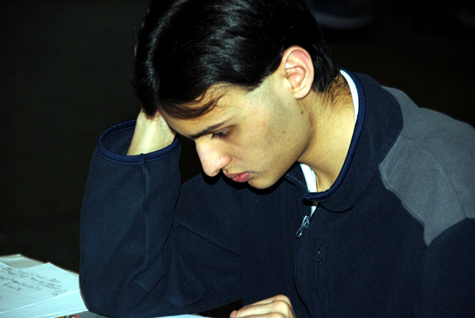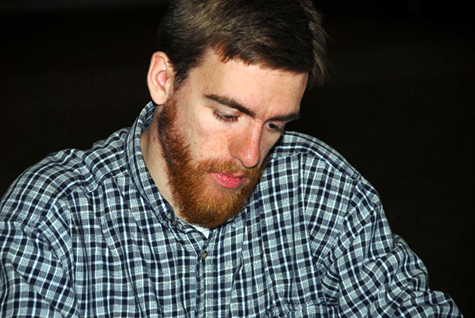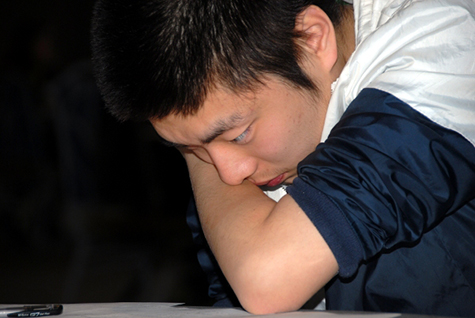
Students everywhere enjoy complaining about tests and how hard and unfair they are, but in the world of tough tests, the Putnam is king.
“The Putnam is difficult,” said Anthony Grebe, who competed in both the Putnam and the Missouri Collegiate Mathematics Competition this year. “The median score is usually zero or some small fraction of a problem. Even if you solve only one problem completely, you’re above average.”
The William Lowell Putnam Mathematical Competition, to give its full name, consists of two three-hour sessions, during each of which competitors work on only six problems, each worth 10 points, for a total of 120 possible points.
According to an online history of the Putnam by Joseph A. Gallian, “the greatest number of zero scores occurred in 2006, when 2,279 of 3640 participants registered scores of zero.” Furthermore, he writes, “the median score was higher than one only once between 1999 and 2006.”

Only knowing this can one properly appreciate the achievement of Washington University in St. Louis senior Alan Talmage, who scored 50 this year. He racked up more points than any other Washington University student, earning an honorable mention in the competition. The next highest scorers were sophomore Zhengdao Chen with 48, sophomore Philip Bonneville with 47 and Anthony Grebe with 38.8. The median score this year for individual participants was in the vicinity of three points.
Institutions may also enter teams of three in the Putnam, but they must designate their team members before the competition, which can lead to rueful head shaking when someone not on the team has a particularly good day or someone on the team has a bad day.
This year, the Washington University team, consisting of junior Anthony Grebe, senior Alan Talmage and sophomore Jongwhan Park, placed 16th out of 500 teams.
This is the last year Talmage will be eligible for the Putnam. “I’m happy with how I’ve done on the Putnam during my time at Washington University,” he said. “My scores have increased steadily over my four years here, which shows that I have been learning and improving. And at its core, mathematics isn’t about competitions. They have been helpful for me to learn and grow, but it’s time for me to move on to doing math of my own.”
Students prepare for the Putnam during Friday afternoon practice sessions in the fall semester. This year the coaches were Carl Bender, PhD, professor of physics; and Renato Feres, PhD, professor of mathematics, both in Arts & Sciences.
Elizabeth Lowell Putnam established the William Lowell Putnam Intercollegiate Memorial Fund in memory of her husband, who graduated in mathematics from Harvard University. The first competition was held in 1938, and the Mathematical Association of America has sponsored the contest since then.
An archive of Putnam problems can be found here.
Missouri Collegiate Mathematics Competition Washington University math students also did well in the 20th annual Missouri Collegiate Mathematics Competition, held March 26-27 in Rolla, on the campus of the Missouri University of Science and Technology. Forty teams from colleges and universities across Missouri took part.

(Credit: Hang Chen)
The two Washington University teams took first and second place in this competition. A team consisting of Grebe, Talmage and junior Fangzhou Xiao, was first. The second-place team consisted of sophomore Ted Meador, freshman Stella Schindler and sophomore Yu Tao Li.
The competition consists of two sessions, during each of which teams work collaboratively on five problems for two-and-a-half hours. Since it began in 1996, a Washington University team has captured first place 13 times.
Ron Freiwald, PhD, professor of mathematics and director of undergraduate studies in mathematics, and Edward Spitznagel, PhD, professor of mathematics, shepherded the students through the state competition.
To view problems from this year’s state competition, visit the competition’s website.